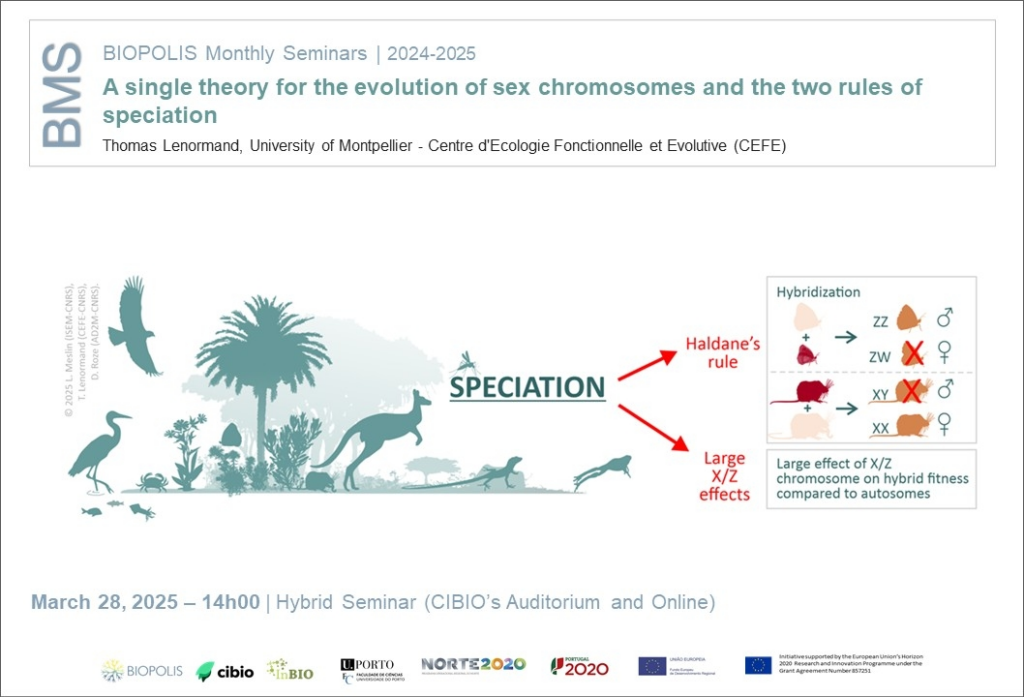
A single theory for the evolution of sex chromosomes and the two rules of speciation
Thomas Lenormand, University of Montpellier – Centre d’Ecologie Fonctionnelle et Evolutive (CEFE)
March 28, 2025| 14h00 | CIBIO’s Auditorium and Online ( https://videoconf-colibri.zoom.us/j/99797933081)
Three major empirical patterns involving sex chromosomes have been observed in higher eukaryotes: Y (or W) chromosomes are often non-recombining and degenerate; when two species hybridize, but one sex is sterile or inviable among hybrid offspring, it is most often the heterogametic sex (XY or ZW)—the so-called Haldane’s rule; and the X (or Z) plays a disproportionately large effect on reproductive isolation compared to autosomes—the so-called large X effect. Each observation has generally received its own tailored explanation involving multiple genetic and evolutionary causes. In this seminar, I will show that these empirical patterns all emerge from a single theory for sex chromosome evolution incorporating the co-evolution of cis and trans-acting regulators of gene expression, and leading to systematic and rapid misexpression of dosage-compensated genes in the heterogametic F1 hybrids, for young or old sex-chromosomes. This theory links the evolution of sex chromosomes to the patterns of post-zygotic isolation observed in hybrids.
More information here